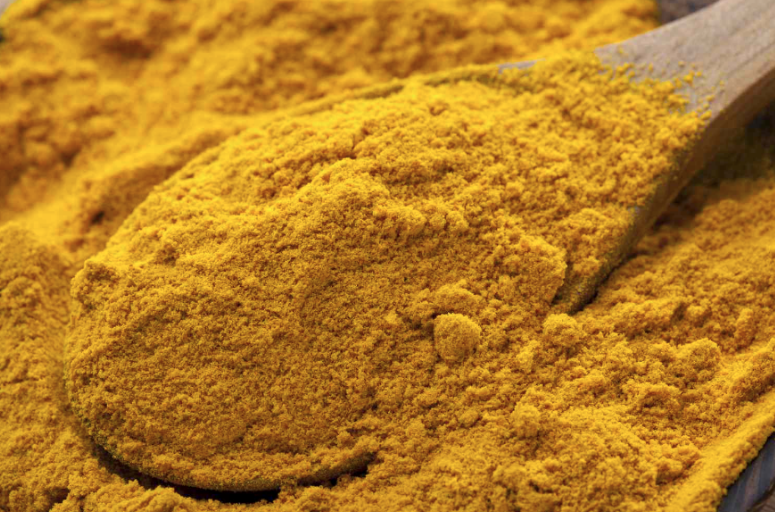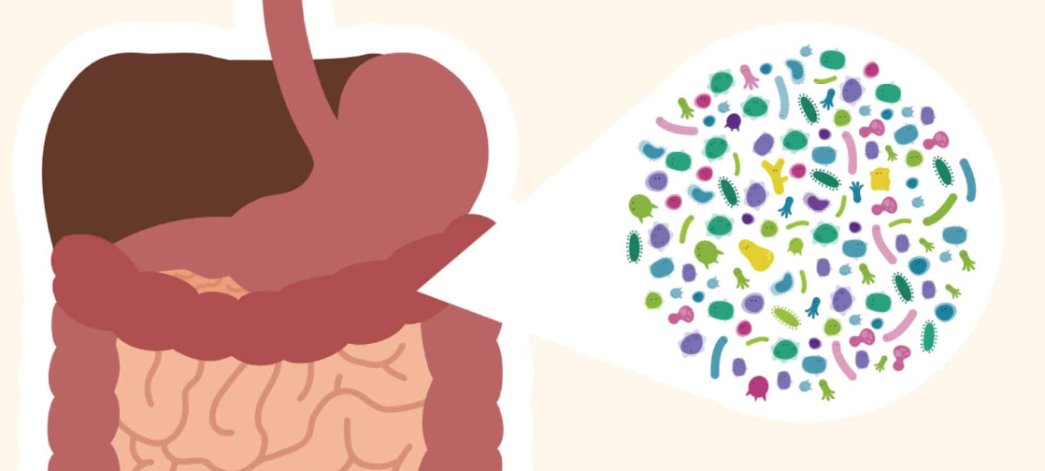 Berberine is a bioactive compound found in many plants, including goldenseal, Oregon grape, and barberry. It has been recognized for its health benefits for centuries, with its earliest known therapeutic use dating back to A.D. 200.
Berberine is a bioactive compound found in many plants, including goldenseal, Oregon grape, and barberry. It has been recognized for its health benefits for centuries, with its earliest known therapeutic use dating back to A.D. 200.
Today, Berberine continues to be an exciting focus of health and wellness research, with many studies investigating its potential for maintaining metabolic health
Potential Health Benefits of Berberine
Numerous investigations have revealed Berberine’s interaction with key metabolic pathways in the body and highlight its ability to promote healthy lipid levels, regulate glucose metabolism, aid in weight management, and contribute to a balanced gut environment.
Healthy Glucose Metabolism and Insulin Sensitivity
Maintaining healthy blood sugar levels is essential for overall well-being.
When our bodies don’t regulate blood sugar levels properly, it can lead to type 2 diabetes mellitus (T2DM), a condition in which high blood sugar levels persist and cause detrimental damage to various organs and systems in the body.
Extensive research has shown that Berberine exhibits antidiabetic effects through various mechanisms. Here are some of the ways Berberine stabilizes glucose levels:
- Enhances Insulin sensitivity. Berberine helps cells take up glucose more effectively, which can help to lower blood sugar levels. (1)
- Protecting pancreatic cells. Berberine offers protection to the cells in the pancreas that produce insulin, which can help to prevent or delay the onset of T2DM. (2)
- Inhibits glucogneogenesis. Berberine can help to reduce the production of glucose (gluconeogenesis) in the liver, which is a major cause of high blood glucose levels in T2DM. This can help to prevent blood sugar levels from rising too high. (3)
- Promotes glucose uptake and glycolysis. Berberine promotes glucose uptake and glycolysis, which are the processes of moving glucose into cells and breaking it down for energy. This can help to lower blood sugar levels.(4, 5)
- Inhibits inflammation. Chronic inflammation plays a significant role in impairing cells’ ability to respond to insulin and effectively take up glucose. Berberine has anti-inflammatory properties, which can help resolve persistent inflammation. (6, 7)
In a clinical trial involving 218 individuals with T2DM, researchers found that Berberine supplementation was as effective as the antidiabetic medication, metformin, in controlling blood sugar control after a 3-month period. They also reported that Berberine reduced body weight as effectively as metformin.
A meta-analysis of 46 clinical trials found that Berberine, both as a standalone treatment and as an add-on therapy with standard medication, significantly improved metabolic profiles in individuals with T2DM.
“Our findings suggested that berberine, used along or combined with antidiabetic agents, significantly improved glucose and lipid metabolisms along with inflammation markers.” (8)
Blood Glucose Regulation
Importantly, researchers have found that Berberine can have a positive effect on insulin secretion without causing low blood sugar levels. This is because Berberine specifically works when blood sugar levels are high. (9)
“The pharmacological mechanism of BBR implies that it acts as a glucose-lowering agent at high blood glucose levels, but this effect is not apparent in people with normal blood glucose, which greatly reduces the probability of hypoglycemia and provides a significant therapeutic advantage over oral hypoglycemic agents (OHAs).” (9)
Cardiovascular Health
“BBR (Berberine) is usually thought of as a traditional Chinese medicine, and recent discoveries have provided novel evidence that it may be considered a promising tool to counteract cardiovascular disorders.” (10)
Blood Cholesterol and Fat Profile
The primary risk factor for CVD is the abnormal metabolism of lipids (triglycerides, cholesterol) in the blood.
A small study in obese subjects showed that 12-week Berberine supplementation (500 mg, 3 times a day) significantly improved blood triglycerides (TG, 23% reduction) and cholesterol (12.2% reduction).
These effects on cholesterol and lipid levels were substantiated in a meta-analysis of 16 randomized controlled trials investigating Berberine in the treatment of dyslipidemia, which found that Berberine supplementation reduced TG, total cholesterol (TC), and LDL cholesterol, while increasing HDL cholesterol.
Cardiac Aging
During the aging process, changes occur in your heart and blood vessels that increase the risk of developing cardiovascular disease.
In a study conducted with older rats, Berberine provided protection against age-related changes in the heart in several ways:
- Reduced the levels of markers associated with heart enlargement
- Slowed signs of age-related dysfunction in heart cells
- Increased the expression of Klotho, a protein known for its anti-aging properties
- Reduced cardiac fibrosis (scar tissue buildup), which is a hallmark of cardiac aging
Inflammation and Oxidative Stress
Many of the cardioprotective effects of Berberine have been attributed to its ability to reduce inflammation and oxidative stress.
In a study conducted on mice, Berberine supplementation was found to significantly protect against myocardial ischemia/reperfusion (MI/R) injury through reducing oxidative stress and inflammation.
The researchers discovered that Berberine’s antioxidant and anti-inflammatory activity was mediated by SIRT1, which is a protein that plays a role in various important processes in the body, such as stress resistance, metabolism, cell death, and energy balance.
“In summary, our results demonstrate that BBR significantly improves post-MI/R cardiac function recovery and reduces infarct size against MI/R injury possibly due to its strong antioxidative and anti-inflammatory activity. Additionally, SIRT1 signaling plays a key role in this process.” (11)
It is noteworthy that two other natural compounds, NMN and Resveratrol, are also thought to exert potential anti-aging and health-promoting effects through the activation of SIRT1.
Weight management
The effects of Berberine on obesity and weight loss are well-documented.

In a meta-analysis of 12 studies, Berberine treatment was found to have significant effects on various measurements related to body weight and health:
- Decrease in body weight (-2.07 kg)
- Lower body mass index (BMI) (-0.47 kg/m2)
- Decrease in waist circumference (WC) (-1.08 cm)
- Lower concentrations of C-reactive protein (CRP), a marker of inflammation (-0.42 mg/L)
“This meta-analysis found a significant reduction of body weight, BMI, WC and CRP levels associated with berberine intake which may have played an indirect role in improved clinical symptoms in diseases with metabolic disorders.” (12)
Fat Tissue Health
In addition to weight gain, obesity causes inflammation and scarring in fat tissue. This causes altered metabolism and contributes to the development of metabolic disorders associated with obesity, such as insulin resistance.
A study on obese mice showed that Berberine can reduce inflammation in fat tissue by reducing the levels of inflammatory proteins and immune cells.
Another study showed It can also reduce the amount of scar tissue that builds up in fat tissue, which can help to improve the function of fat tissue.
Increases in Energy Expenditure with Brown Fat
Research suggests that an important way Berberine helps to reduce weight is through increasing levels of brown adipose tissue (BAT).
A clinical trial in mildly overweight patients with non-alcoholic fatty liver disease found that Berberine supplementation for one month increased BAT mass and activity, improved insulin sensitivity, and reduced body weight.
“In summary, we demonstrated for the first time that BBR (Berberine) administration increases both the mass and thermogenesis activity of BAT in humans, in parallel with a series of metabolic improvements.” (13)
Gut Health
The significance of gut health in maintaining overall well-being is widely acknowledged.

Gut Microbiome Balance for Reducing Neuroinflammation and Promoting Metabolic Health
Many of Berberine’s studied health effects are often mediated through its impact on the gut microbiome
The gut microbiome is known to influence neuroinflammation. (14) In a mouse study, transferring the gut bacteria from mice treated with Berberine to other mice showed beneficial effects. It helped strengthen the intestinal barrier and reduce inflammation in the brain after intracerebral hemorrhage, indicating the importance of Berberine’s effect on the gut microbiome for its potential benefits.
Berberine has also demonstrated positive effects on metabolic health. In a study with obese mice, it reduced plaque formation and improved metabolism by increasing the abundance of beneficial Akkermansia bacteria.
Moreover, research in mice with type 2 diabetes mellitus showed Berberine administration improved gut microbiome composition, which led to weight reduction, improved insulin sensitivity, reduced inflammation, and repaired intestinal barrier structure.
Intestinal Disorders
A meta-analysis of studies on ulcerative colitis revealed that Berberine reduces oxidative stress, cell death, fibrosis, and inflammation in the gut. It also protects the gut barrier and promotes a healthy gut microbiome.
Additionally, a clinical trial on patients with irritable bowel syndrome (IBS) demonstrated that Berberine improved IBS symptoms, depression and anxiety scores, and quality of life.
Bioavailability
The bioavailability of berberine is less than 1%, which means that only a very small amount of the berberine that is taken is actually absorbed into the bloodstream. (15) This is because berberine is poorly soluble in water and is easily broken down by stomach acid.”
References
- Berberine Modulates Gut Microbiota and Reduces Insulin Resistance via the TLR4 Signaling Pathway
- Effect of berberine on hyperglycaemia and gut microbiota composition in type 2 diabetic Goto-Kakizaki rats
- Berberine Attenuates Hyperglycemia by Inhibiting the Hepatic Glucagon Pathway in Diabetic Mice
- Bidirectional regulation of adenosine 5′-monophosphate–activated protein kinase activity by berberine and metformin in response to changes in ambient glucose concentration
- Berberine Promotes Glucose Consumption Independently of AMP-Activated Protein Kinase Activation
- Adipose Tissue SIRT1 Regulates Insulin Sensitizing and Anti-Inflammatory Effects of Berberine
- Berberine chloride ameliorates oxidative stress, inflammation and apoptosis in the pancreas of Streptozotocin induced diabetic rats
- The Effect of Berberine on Metabolic Profiles in Type 2 Diabetic Patients: A Systematic Review and Meta-Analysis of Randomized Controlled Trials
- Glucose-lowering effect of berberine on type 2 diabetes: A systematic review and meta-analysis
- Study progress of berberine for treating cardiovascular disease
- Berberine Attenuates Myocardial Ischemia/Reperfusion Injury by Reducing Oxidative Stress and Inflammation Response: Role of Silent Information Regulator 1
- The effect of berberine supplementation on obesity parameters, inflammation and liver function enzymes: A systematic review and meta-analysis of randomized controlled trials
- Berberine promotes the recruitment and activation of brown adipose tissue in mice and humans
- Gut microbiome-mediated regulation of neuroinflammation

